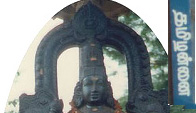
 |
||
| Home Culture Lessons > I 1 2 3 4 5 6 II 1 2 3 4 5 6 III 1 2 3 4 5 6 IV 1 2 3 4 5 6 V 1 2 3 4 5 6 VI 1 2 3 4 5 6 Select Unit | ||
|
| ||
Tamil Eloquence and Political RhetoricOratory at political rallies, cultural gatherings, literary meetings etc., is a common practice among the Tamils. Emphasizing the historical merits of the Tamil language and its literary heritage is one of the ways that the orators attract audiences. This is because of the widespread belief in the beauty of the Tamil written language. For this reason, those who are able to command literary Tamil with ease are highly respected. Such uses of Tamil has been common in Tamil politics, from their political agendas (e.g., encouraging the use of Tamil in the government, schools, etc.) to how they use their language (e.g., in political speeches). Cracking jokes, teasing others indirectly etc., are quite common in such speeches. During elections, the political party members go to the extreme of attacking each other verbally on the political platforms, albeit in poetic style. This has been an unavoidable and uncontrollable feature of the Tamil Political arena. Below are some Tamil expressions that describe the fluency of such speeches. Note how the descriptions themselves are often poetic, utilizing metaphor and onomatopeia. வெட்டு ஒண்ணு துண்டு ஒண்ணுண்ணு அவர் பேசுவார் 'He speaks outright, without hiding anything. (lit. he speaks as though one simple cut results two pieces)' கல கலண்ணு சிரிக்க வைப்பார் 'He would make the audience laugh.' சும்மா கணீர் கணீர்ண்ணு பேசி எல்லாரையும் அசர வைச்சிடுவார் 'He makes everyone stunned, simply by speaking so priciesly and boldly.' அவரோட பேச்சுல தமிழ் பூந்து விளையாடும் 'In his speech, the Tamil language just spins around.' வழா வழா கொழா கொழாண்ணு பேசாம சுத்தத் தமிழ்லெ பேசி எல்லாருக்கும் தண்ணி காட்டிடுவார் 'Without speaking very sluggishly, he uses the pure Tamil and makes his opponents giddy' (lit. he would show water to everyone). Some political party members use certain catch phrases to identify their own individuality. Following are some of the phrases that some speakers used in the past: ரத்ததுக்கு ரத்தமே 'Belonging to the same blood' (lit. blood of the blood). This phrase implies the close affinity between the speaker and the people. எல்லோரும் இந்நாட்டு மக்கள் 'Everyone is the king of this country.' மாற்றான் தோட்டத்து மல்லிகைக்கும் மணம் உண்டு 'The jasmine from the neighbor's garden also possesses fragrance.' ஏழைப் பங்காளி 'kin to the poor people' Quoting the ideas and concepts from ancient Tamil literature quite frequently are often used to imply the speakers' love on language and culture, and hence their closeness to the interests of the Tamil people. Below are some allusions commonly used in political rhetoric: புறமுதுகு காட்டாத வீரம் நம் வீரம் 'Our bravery never shows our back to the enemies.' (From the Sangam classics புறநாநூறு.) செல்விருந்தோம்பி வருவிருந்து பார்க்கும் பரம்பரை நம் பரம்பரை. 'Our lineage is the one that always treats the guests with pride and expects more guests all the time' (From the Sangam work: திருக்குறள்.) யாதும் ஊரே யாவரும் கேளிர் 'all towns are local towns and everyone is our kin' (From Sangam poem) These quotes are comprehensible by most of the Tamil speakers because of their common currency in the population at large, partially due to their use in politics. Use of metaphors and alliteration are very common in literary/political speeches. முல்லைக்குத் தேர் தந்த பாரி வாழ்ந்த குலம் நம் குலம். 'Our lineage belongs to the lineage of the king Pari who gave away his chariot to the Jasmine wreath to grow'. கற்புக்கரசி கண்ணகி பரம்பரையில் வந்தவர்கள் நம் நாட்டுப் பெண்கள் 'Our women belong to the tradition of the chaste woman Kannaki' (Kannaki is the heroine in the epic Silappathikaaram, and is often used as a model for chaste women). |
|
© South Asia Language Resource Center (SALRC) |